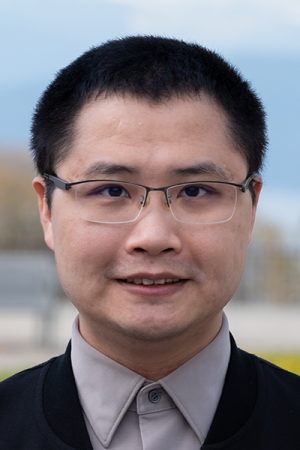Candidates for the computer science tenure-track faculty position openings in the College of Computing will be visiting campus this semester, including Congyi Zhang.

Bio
Congyi Zhang is a Postdoctoral Research and Teaching Fellow at the Department of Computer Science at the University of British Columbia. Before joining UBC, he held positions as a Research Associate at the University of Hong Kong and a Visiting Researcher at the Max Planck Institute for Informatics in Germany. Dr. Zhang earned his Ph.D. degree in computer science at Peking University and his B.Sc. degree in mathematics at Fudan University. He has published numerous papers in top-tier conferences and journals, including SIGGRAPH, SIGGRAPH Asia, IEEE VR, CHI, ICCV, and TVCG. His research interests encompass computer graphics, human-computer interaction, and deep learning in visual computing.
Candidate: Congyi Zhang
Date and time of visit: Monday, Feb. 3, 2025, 3 p.m. ET, following a social hour in Rekhi 218
Location: Rekhi G005
Abstract
3D Shape Modeling and Processing for Digital Content Production
Abstract: 3D content lies at the heart of everything from games and movies to the metaverse. Creating and representing 3D content is important across computer graphics, virtual reality, and many other applications. While professionals rely on specialized modeling and rendering tools to manipulate and visualize 3D shapes, creating usable 3D content remains a significant challenge for non-professionals. My research tackles this barrier by exploring interactive methods to democratize 3D content creation. In the same vein, I will discuss the theory and methods for representing 3D shapes using emerging neural representations, which offer several advantages over traditional mesh surfaces and enable new applications. I will also present techniques for faithfully and efficiently extracting conventional mesh surfaces from neural representations. Finally, I will outline my research vision and plan, highlighting the integration of digital humans, neural shape representations, and generative models in 3D computer graphics applications.
About the College of Computing
The Michigan Tech College of Computing, established in 2019, is the first academic unit in Michigan dedicated solely to computing, and one of only a handful such academic units in the United States. The college is composed of two academic departments. The Computer Science department offers four bachelor of science programs in computer science, cybersecurity, data science, and software engineering; four master of science programs in applied computer science, computer science, cybersecurity, and data science; and a doctoral program in computer science. The Applied Computing department offers four bachelor of science programs in cybersecurity, electrical engineering technology, information technology, and mechatronics; two master of science programs in health informatics and mechatronics; and a doctoral program is in computational science and engineering.
Questions? Contact us at computing@mtu.edu. Follow the College of Computing on Facebook, Instagram, LinkedIn and Twitter.